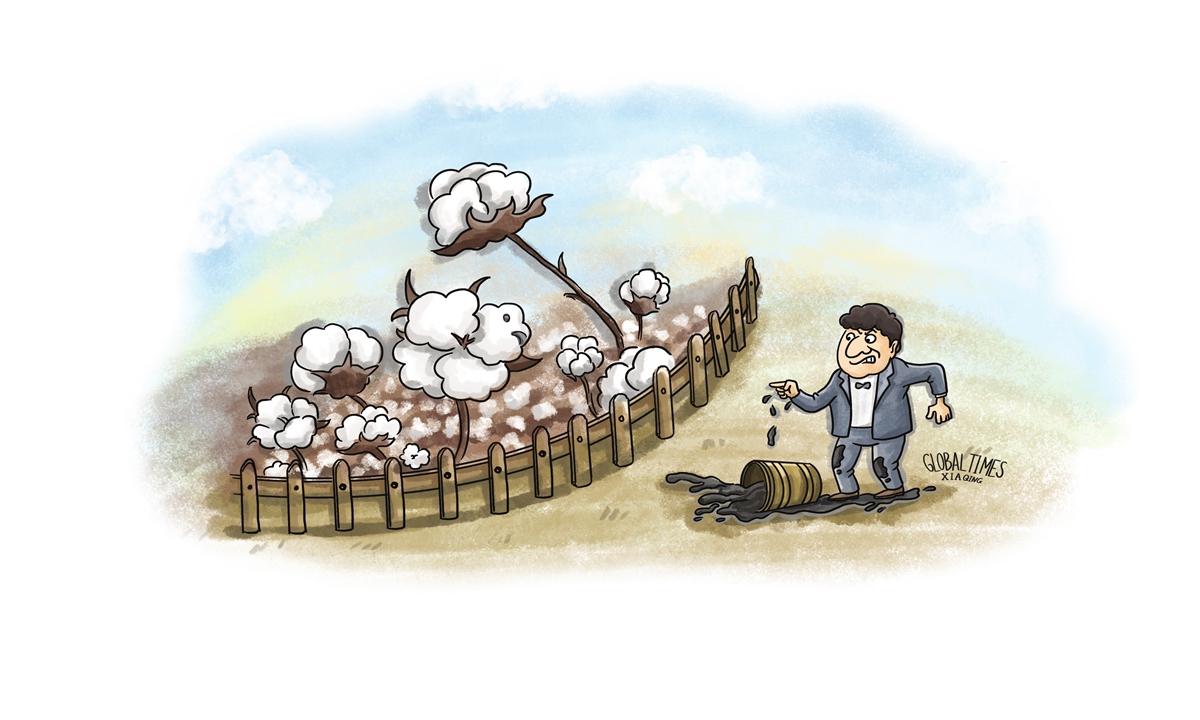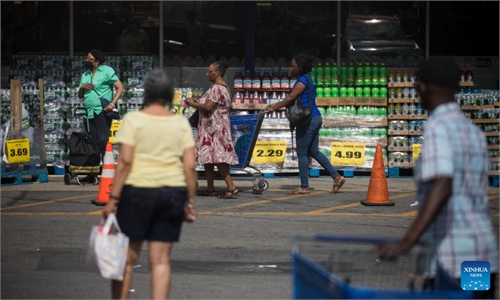
Illustration: Xia Qing/Global Times
The allegation of so-called "forced labor" in Xinjiang is a huge lie made up by the anti-China forces in the US and the West.But regrettably and to our great surprise, some consumers in Germany have been fooled by those anti-China forces' fabrication and tend to believe those lies. The rise of populist sentiment is likely to further damage German economy, pushing German companies into a dilemma.
A Civey survey has found that 71 percent of more than 5,000 respondents in Germany said that they tend to oppose the import of products if it is suspected that so-called "forced labor" is involved in the production process, Deutsche Welle reported on Tuesday.
The report said there is growing awareness among German consumers over the need to ban products produced under conditions that "violate human rights."
As ordinary people in the West turn their eyes to Xinjiang, some Western media first fabricated outrageous lies about "forced labor" in cotton-related industries in Northwest China's Xinjiang Uygur Autonomous Region, and then took advantage of their discourse power to speak with a unanimous voice to impact public opinion in the West, tricking people into believing their lies.
The Civey survey proved they have succeeded in distorting the public's understanding of China's Xinjiang. Those media outlets stoke up anger and resentment among the public, and then cunningly manipulate the populist sentiment to play the anti-China card.
Populist sentiment is unlikely to help German people understand what exactly happened in Xinjiang, but does have the possibility of undermining German companies and the nation's economy.
If German consumers bear in mind that Xinjiang cotton accounts for about 20 percent of the global cotton supply, they will understand that how much trouble it would be to ban imported goods from Xinjiang.
In addition to cotton, nearly 50 percent of the world's polysilicon comes from Xinjiang. Also, Xinjiang is an important production base for processed tomatoes in China. In recent years, more and more multinational companies in industries ranging from textiles, food to manufacturing have come to Xinjiang because of the abundant natural resources and vibrant investment environment there.
If German consumers want to ban imported goods from Xinjiang, those multinational companies, including German ones, will be the first to suffer.
In this increasingly globalized era, the rise of populism is certain to disrupt the global industrial chain. The victims of this will be many including Germany's own economy.
German inflation has climbed to a fresh record high of 7.9 percent in May, the highest level since the first oil crisis in the winter of 1973/1974. The rise of populism is set to backfire on German businesses and its own economy, resulting in worsening inflation.
Chinese manufacturers can enable global consumers to enjoy cost-effective products that have the same high quality as many Western luxury brands. It is regrettable to see some German consumers were easily duped by groundless lies propagated by the Western media.
The author is a reporter with the Global Times. bizopinion@globaltimes.com.cn



